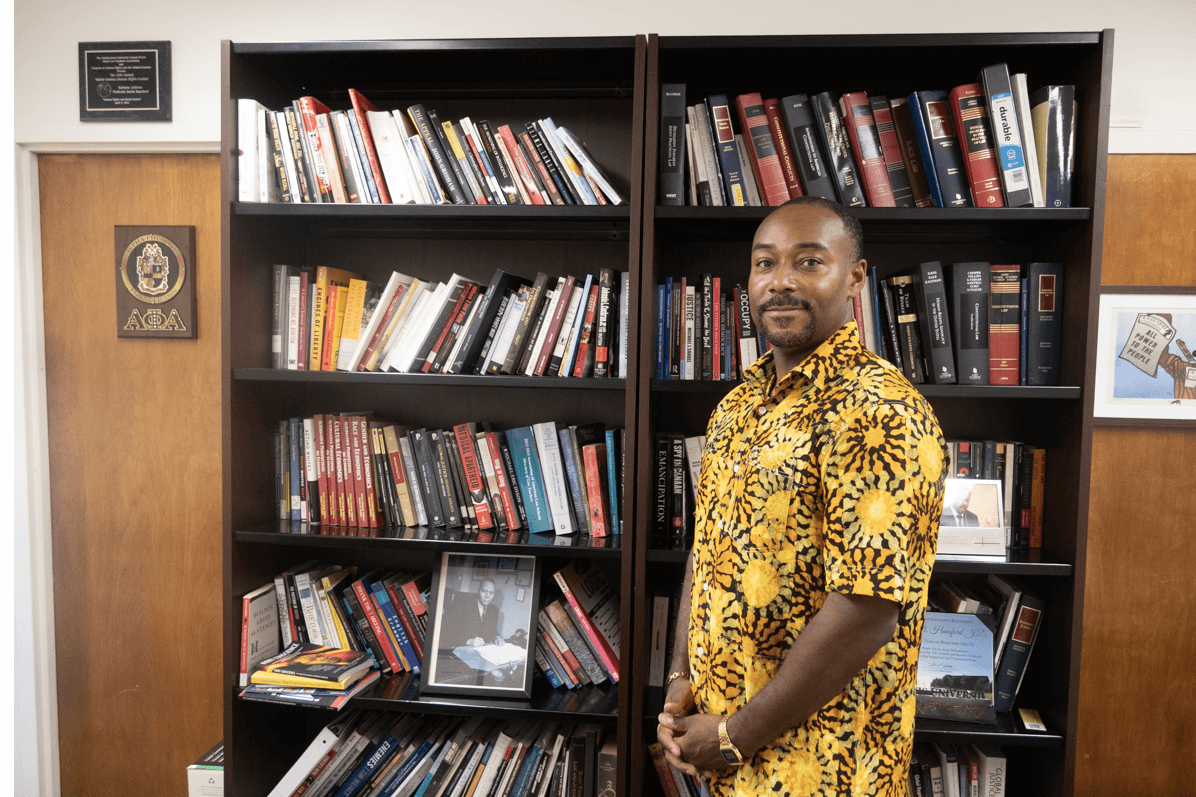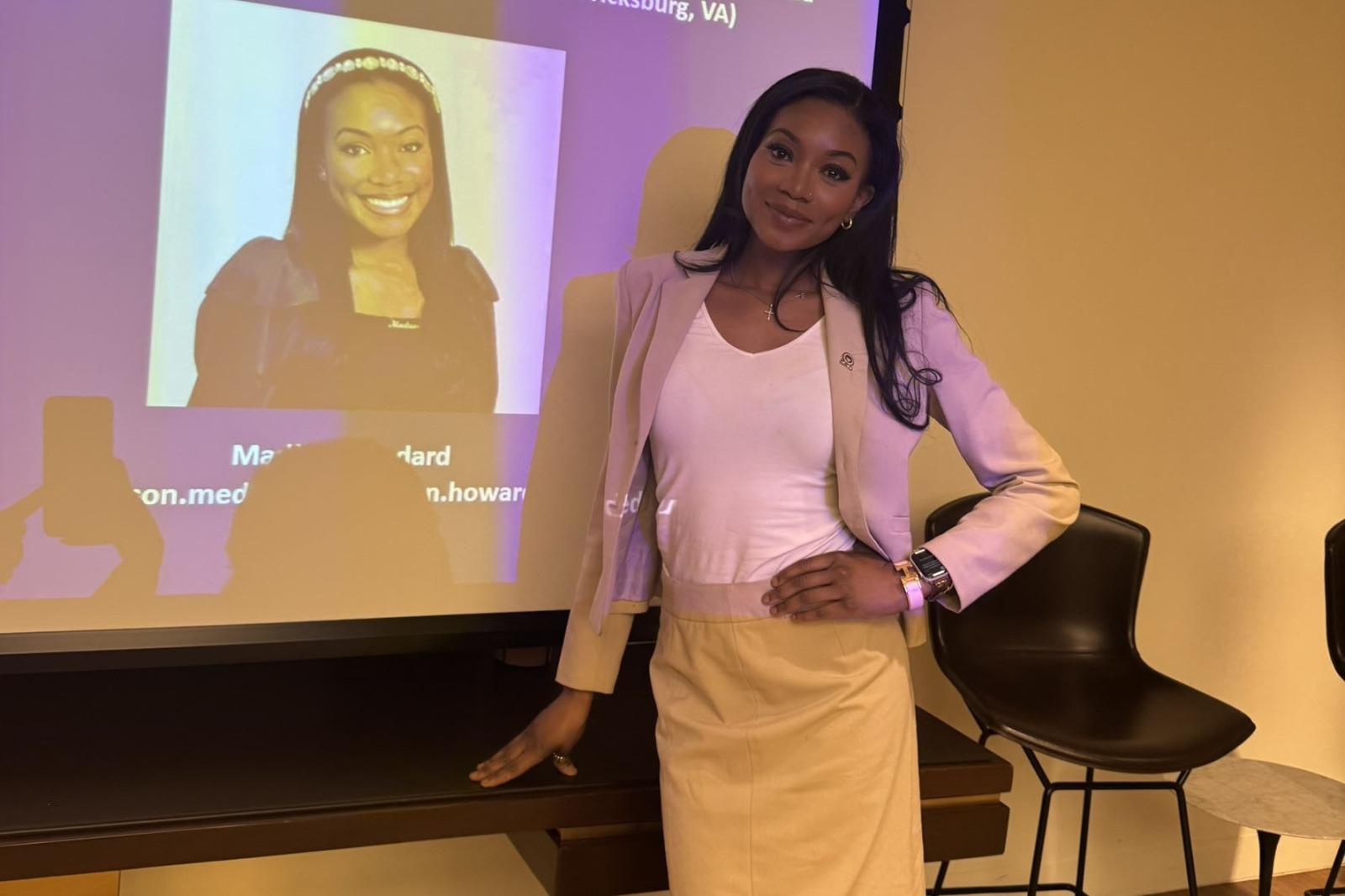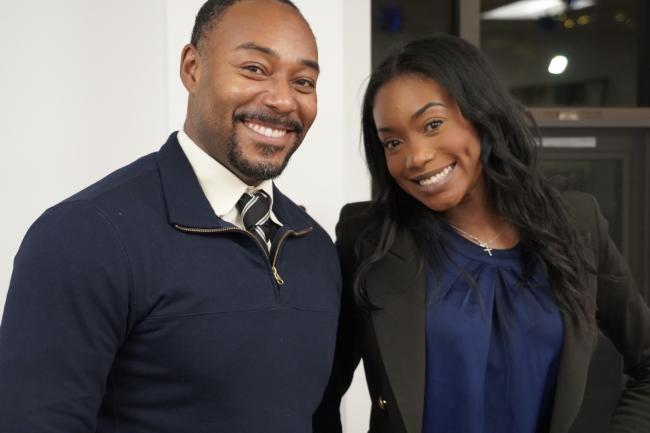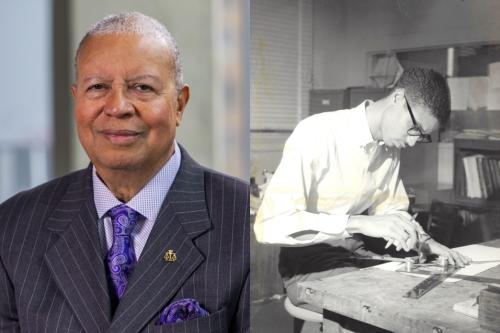An international affairs major and French minor, rising sophomore Zuri Giscombe has a keen interest in studying the modern interactions between France and its former colonies, and a broader interest in global post-colonial relations. This April, she had the unique opportunity to see these interactions at the highest levels in New York, where she joined 14 other Howard students in the fourth U.N. Permanent Forum on People of African Descent.
“It was super surreal, because we were in the General Assembly room,” said Giscombe. “And we just got to hear the representatives of different organizations and also different countries give their opening speeches opening remarks.” For her, the forum revealed the true scope of issues facing the African diaspora, and of the organizations, countries, and people working to address them. “I didn’t realize how it would be almost as if everyone who is involved in anything dealing with international affairs as it relates to people of African descent, they just descended on New York and it was just a real community.”
Making the Local Global
Giscombe was one of the first non-law students participating in the forum for the first time. She, along with six other undergraduate students, were there to assist Howard University Thurgood Marshall Civil Rights Center Director Justin Hansford, one of the founding 10 members of the forum and the only one from North America. The forum is charged with providing advice and policy recommendations for the U.N. Human Rights Council related to people of African descent, and according to Hansford, one of the biggest limitations is a lack of information.
“You actually have a lot of gaps in terms of understanding, for example, just employment numbers, but just as often food access, access to decent housing, access to clean water, access to education, gender justice,” he explained. “So what my responsibility is is to gather that information from people naturally, because of course you can’t help people improve their conditions unless you outreach, unless you observe.”

To solve this knowledge gap, Hansford created the Black Audit Project, a survey of 40 American cities focused on the conditions of African American communities. So far, 20 cities have been surveyed — from Queens to Atlanta to Bowie, Maryland — using the 17 Sustainable Development Goals called for by the U.N. to determine whether human rights have been achieved in a given area. The results have provided critical information to the U.N. and federal representatives to inform broader policy changes, while also empowering local officials and organizations with a deeper understanding of what solutions are needed now.
The local part is especially important to Hansford, who emphasizes the project is focused on not only reporting problems but finding informed solutions.
“We have the town halls where people talk about what’s happening with them and share their stories and we have narratives in there, but we also want to hear solutions and we want solutions that come from the community,” he said. “I definitely don’t want to come in as an outsider from D.C. and tell them what solutions they should implement in their own communities for their local problems.”
This approach extends even to the students creating the reports. Each semester, they conduct research on their own hometowns, contacting nonprofits, working with their community, and holding town halls to understand the issues facing the Black community in the area. Their goal is more than just creating a snapshot of the current issues in the area; these are deep dives to identify structural, long-standing issues and how locals would like to see them addressed. They then develop a 50-100 page “grade” on community conditions and recommendations before presenting their findings to the U.N. themselves in the spring.
“I did a lot of research that wasn't the normal legal research I do every day for work and for school,” said Howard Law student Madison Medard, whose report focused on her home of Queens. “It was a lot of going online, talking to people, calling people, finding out what people really did for a living and how their contributions were able to support the Sustainable Development Goals in Queens.”
I didn’t ever realize how many organizations and people were on the ground trying to bring that change.
Similar to Giscombe’s meeting with the breadth of work being done across the globe, one of the things that struck Medard most was learning about the work already done in her own community, in particular highlighting Connected Chef, a mutual aid group working to provide affordable groceries in Queens. “I didn’t ever realize how many organizations and people were on the ground trying to bring that change,” she said. “It was very eye-opening for me and it made me feel like I had a say and I could actually bring change to Queens, because that’s what all these people are doing. It was inspiring, that’s the word I would use.”
Medard plans to return to Queens after graduation, providing legal services to organizations already on the ground. For her, working on the Black Audit project enhanced a sense of responsibility to her community. “It has affected how I approach studying law, just in the sense that what I’m doing is bigger than me,” she said. “There’s more out there that I can do as a movement lawyer and as someone who wants to bring change.”

Generational Impact
Hansford, now in his second term on the forum council, takes the long view on the Black Audit project, hoping to see it expand even further both nationally and globally. He also hopes it inspires his students to go on to take leadership positions within their own communities.
“I try to instill in them that they have the capacity to be leaders in their communities, as a result of their education at Howard, as a result of their access to understanding these complex policy issues, of the skill sets their building as public speakers and doing complex reports,” he said. “They are already equipped to be leaders.”
This extends even past the law students, to the undergraduates who attended the 2025 forum. Giscombe spoke about meeting and collaborating with other younger members of the African diaspora from across the world. As part of the forum, she and the other Howard students hosted an event, “What’s Next: A Conversation Amongst Youth of African Descent,” a roundtable where they drew on their own experiences from across the world to discuss the future of health care, education, allyship, and the justice system.
“That’s what the entire purpose of the forum was: to represent the various interests of Black communities around the world on an international scale,” she said. “And that’s what drew me to it and I think what I wanted going into it and what I gained from it, not just getting those new perspectives to inform my own research, but also expanding my own worldview.”





